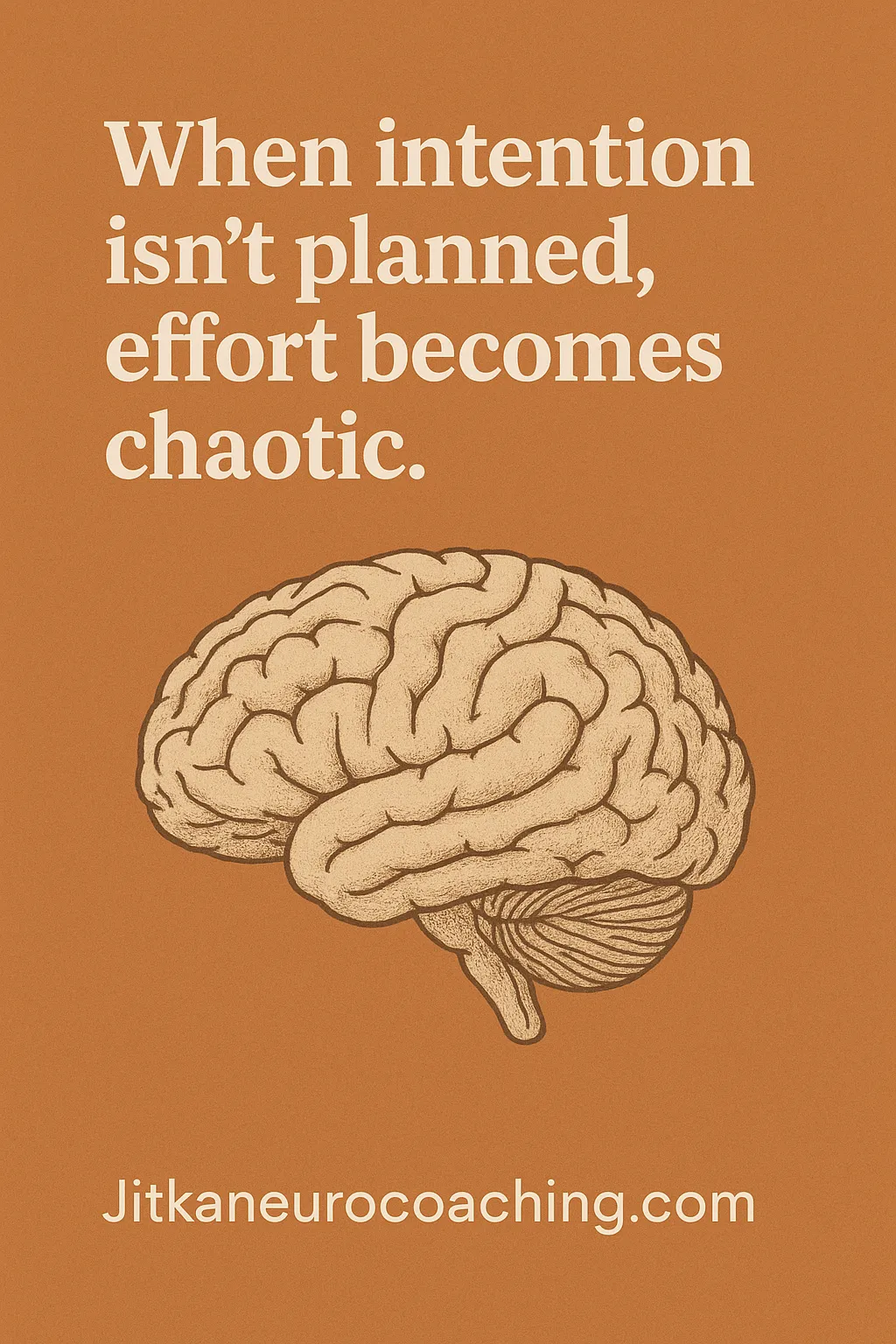
Implementation intention vs goal intention
🤪When intention isn’t planned, effort becomes chaotic
Ever feel like running a marathon in a hamster 🐹 wheel? That’s what unfocused effort often looks like: all energy, staying in the same place. I have certainly felt that way! It’s time to stop and reflect on what’s going on!
We often have good intentions but fail to adhere to them. "Slips of action" occur in everyday life when we momentarily lose sight of a goal.(Watson et al., 2018) (1) Willpower can take us so far, but is it possible to do things in a more directional way?
Our brain 🧠 is like a symphony: each neuron an instrument, ready to play its part. When you design an implementation intention, you hand your brain a musical score. Suddenly, neural coordination replaces frantic improvisation. What felt like noise becomes harmony.
In fact, fMRI evidence shows that implementation intentions recruit more efficient, automatic neural pathways than goal intentions, reducing reliance on effortful control (Hallam et al., 2015).(2)
Recent behavioural research confirms that “if-then planning” helps close the gap between intention and action, letting parts of your brain shift into autopilot (van Timmeren et al., 2023).(3)
You don’t need more grit. You need more clarity. Define when, how, and where, and let your brain do the rest.
Comment below: do you already use implementation intentions? What’s your favorite “if → then” that’s helped you? If I see a reply to this post, then I will reply within 1 day.🙂
References
(1) Watson P, van Wingen G, de Wit S. Conflicted between Goal-Directed and Habitual Control, an fMRI Investigation. eNeuro. 2018 Oct 10;5(4):ENEURO.0240-18.2018. doi: 10.1523/ENEURO.0240-18.2018.
(2) Hallam GP, Webb TL, Sheeran P, Miles E, Wilkinson ID, Hunter MD, Barker AT, Woodruff PW, Totterdell P, Lindquist KA, Farrow TF. The neural correlates of emotion regulation by implementation intentions. PLoS One. 2015 Mar 23;10(3):e0119500. doi: 10.1371/journal.pone.0119500.
(3) van Timmeren T, O'Doherty JP, Dzinalija N, de Wit S. Can the Brain Strategically Go on Automatic Pilot? The Effect of If-Then Planning on Behavioral Flexibility. J Cogn Neurosci. 2023 Jun 1;35(6):957-975. doi: 10.1162/jocn_a_01990.
